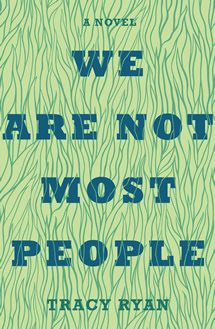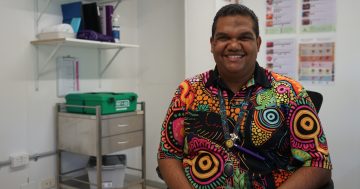Reviewed by Rama Gaind.
By Tracy Ryan, Transit Lounge, $29.99.
 “Truly bold, honest, tender and amazingly assured” is an apt description for We Are Not Most People.
“Truly bold, honest, tender and amazingly assured” is an apt description for We Are Not Most People.
The damage caused during childhood is the main reason for the unease in the failure of a relationship with this couple, Kurt Stocker and Terry Riley. They feel a connection, but their love fails to flourish. An abusive family and the traumas of a religious upbringing are the undoing.
This is not an ordinary couple. An older man and a younger woman in love with one another, but damaged by their past lives. It’s touching in its frankness, but disquieting in its scrutiny of faith and human existence. This is a novel that is demonstrative, lingering and ultimately memorable.
Stocker, a lonely, contemplative man from a small village in Switzerland, spends most of the first 30 years of his life in religious institutions, first at boarding school and then in the seminary. He meets and marries Liesl, they have a child and migrate to Perth.
On the other hand, Terry is a Perth girl, who as a teenager is taught English and languages by Kurt. That’s when she becomes enamored with him, her “only imagined ally”. She also has an ill-fated “fall into religion”.
Years later their paths cross again when Kurt’s new school needs a language tutor. He is now an eccentric 50-year-old living in a caravan at the bottom of his ex-wife’s bush block.
So begins an unexpected union. Even though she’s now in her 20s, Terry has never stopped thinking about him: “It wasn’t me pursuing, I told myself … it was meant to be. It was fate pursuing me.”
Both have had limited experience with the opposite sex. Their adult relationship is elusive too.




